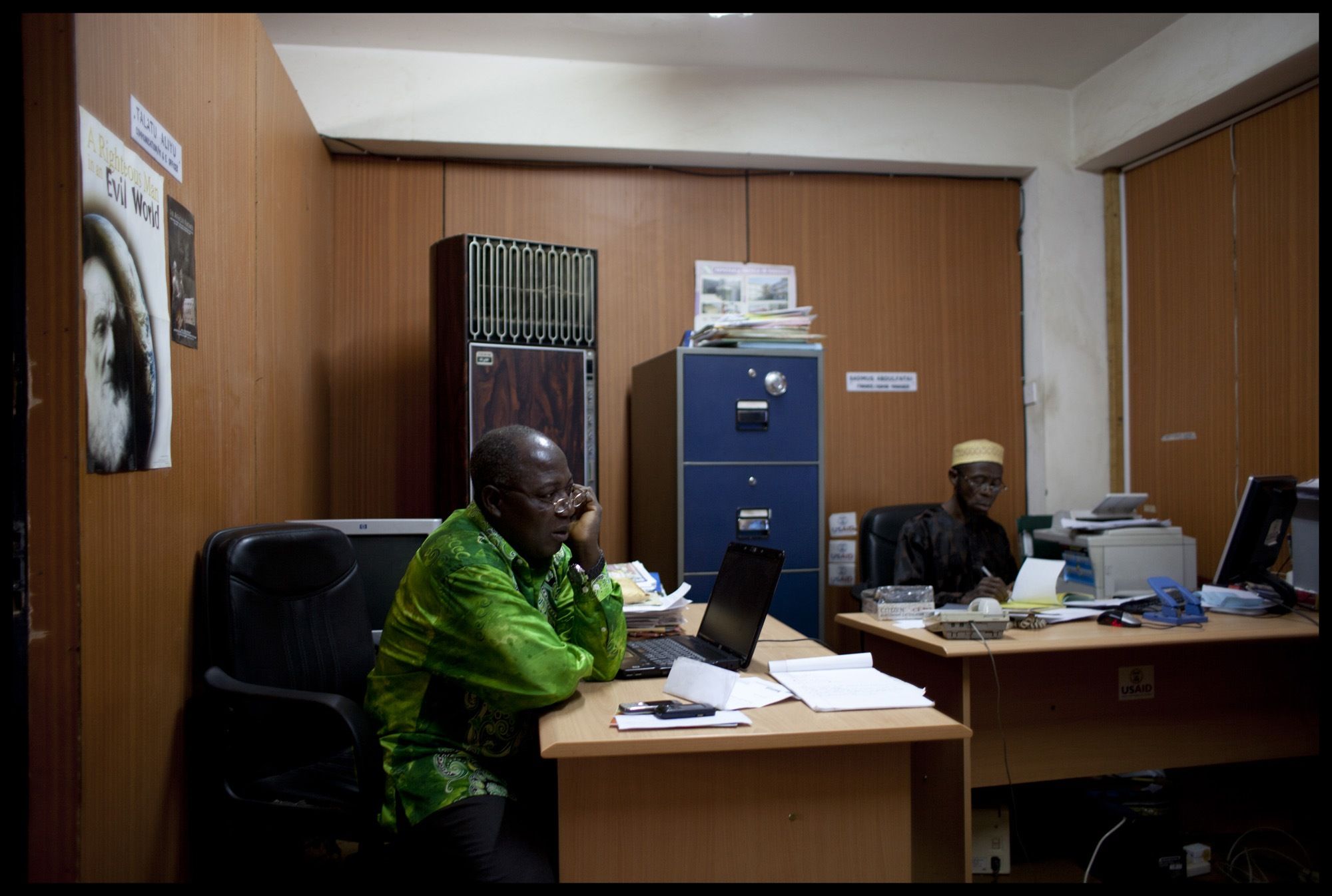“They've raised the stress, the cost, the risk,” Pastor James Wuye says. Nigeria's national elections commission has just called off legislative polls halfway through the process, and the pastor's usually sunny demeanor has suddenly darkened.
“Let's just hope they come back to vote on Monday.”
Monday, it turns out, will prove to be overly optimistic. By Sunday evening, the entire elections timetable will be pushed back a full week.
It isn't the most auspicious start to three weeks of elections that analysts predict will be crucial to determining whether Africa's most populous nation can break with a recent history of flawed and violent polls and build a viable democracy.
Nigeria's elections track record is not good. A brutal civil war that erupted a few years after independence was followed by three decades of military dictatorship. Perhaps the only credible polls in its 50-year history – a fleeting attempt to return to civilian rule in 1993 were nullified by a northern general when it became apparent that a candidate from the south had won them. And each of the three elections since the return of civilian rule in 1999 has been worse than the previous; marred by confusion, fraud and violence.
In the wake of the last of these – a 2007 sham that was ultimately decided in the High Court – a number of reforms were pushed through. Attahiru Jega, a respected university professor, was chosen to head the elections commission. And practical changes, including channeling increased security to high-risk areas and measures to prevent tampering with ballot boxes, were put in place to cut down on fraud.
I've come to Jos, the capital of Plateau State in Nigeria's volatile Middle Belt region to report on what are potentially the most explosive polls. Home to both Muslims and Christians, Plateau State has been at the epicenter of recent sectarian clashes. At least 800 people died in election violence following local polls in 2008. And around 1,400 have been killed in clashes in the past 15 months.
The federal government has sent in thousands troops to back up the local police force ahead of the vote. Vehicles are banned from circulating on the morning of the polls, and as I drive to meet the pastor, the nervous soldiers manning roadblocks that have sprung up over night peer through the car window, scrutinizing my press credentials before waving me through.
“I don't want any violence. There are tensions already,” Pastor Wuye tells me in the dusty parking lot of his hotel as an army attack helicopter circles overhead. The pastor, who runs an interfaith conflict resolution organization along with a Muslim imam, has come to Jos to head a team of 40 observers. It will be their job to monitor the polls
and try to head off any violence before it starts. The imam has already left to do the same in neighboring Bauchi State.
“The reason we picked Jos and Bauchi is because these are areas that have been violent lately, and lots of observers don't want to go there,” says the pastor, himself a former Christian militia leader who wears a prosthetic arm, a reminder of his violent past.
Elections officials have boasted that registration figures surpassed expectations when the country set out to establish new voter rolls. They say it is a sign that, despite the disappointments of the past, Nigerians believe in these polls. And it would appear they are right. At hundreds of polling centers across town, voters have shown up early for an accreditation process due to start at 8 a.m. Voting itself is scheduled to begin at noon.
The residents of Jos may have agreed, for today at least, to take their fight off the street and give the ballot box a try. But the divisions are stark.
“I am Christian, and this is a Christian state. Jos, that stands for Jesus Our Saviour. So we need a Christian brother to rule,” says Linus Jack, 32, a resident of the city's divided Nassarawa neighborhood and staunch supporter of Plateau State's divisive Christian governor, Jonah Jang.
“They want to capture Plateau State because this is a Christian state. They want to make it a Muslim state.”
Across an army buffer zone, a few hundred meters away, 37-year-old Abbas Baba Mariam, a member of the state's Muslim minority is hopeful.
“We want to change the government. We need democratic leaders,” he says. “It's not about religion. It's about politics and tribalism. Look at the civil service appointments. They're all from the same tribe. Berom, like the governor.”
By 10 a.m., poll workers still haven't shown up, and it is clear that something is very wrong.
The pastor gets a phone call.
“He says that the election has been canceled,” he says after hanging up.
“This is how rumors start.”
A few hours later, however, and the rumor has become reality. At one polling center, a group gathers around a TV. Jega, the head of the elections commission, is announcing the suspension of voting. The arrival from abroad of some ballots and other crucial materials has been delayed, he says, by logistical problems somehow linked to the disasters in Japan.
Few here are buying it.
“They are trying to steal it already,” says one man, as he turns to head home.
